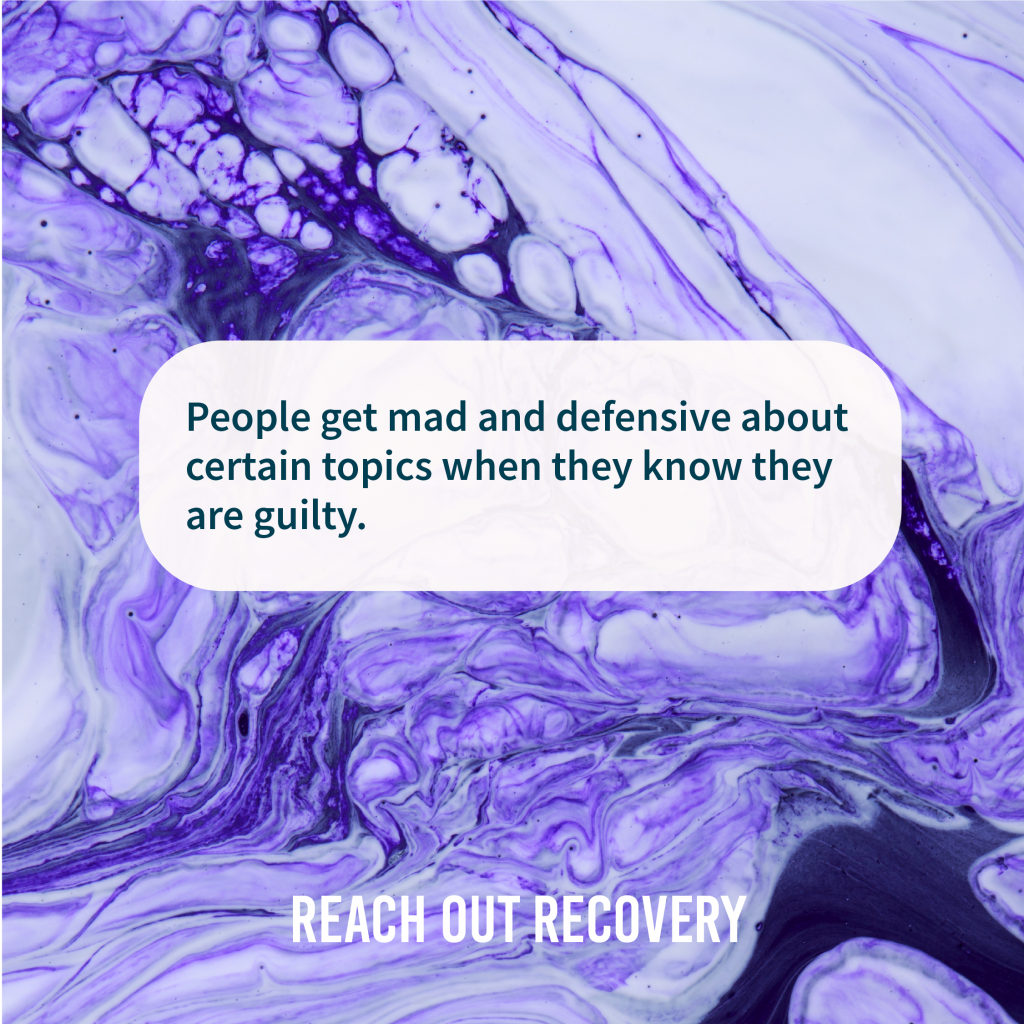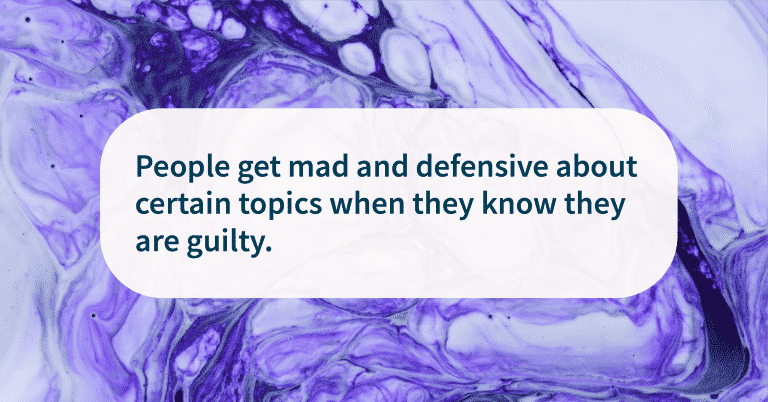
Anger can be a defense against accusations. This happens frequently in families where there are substance or alcohol use disorders or behavior disorders like gambling. Anger can also be a defense of closely-held opinions or views. We see this anger erupting in politics right now. If you hold an opposing view to a friend or co-worker, that person may erupt in anger because you don’t see it his way. Learning to co-exist with different views is crucial to us being able to move forward with unity as a nation. There is no guilt involved in having an opinion. Whether it’s right or wrong is not your business. So guilt doesn’t have a place in political discussions. No one believes their side is wrong.
Anger can be an offensive move to hide unhealthy behaviors
If anger is a common response to any request or comment, however, it could be someone is using rage as an offensive measure. And there may very well be guilt behind it. When someone is angry at you, your response may be to back down or yell right back. Where there is substance or alcohol use is in the picture, dysfunctional communications are sure to follow. Say a loved one, spouse, co-worker, partner, or a child is doing something he/she knows is wrong, the best defense if an offense. Get mad. Yell, protest your innocence. Project blame on the other person. We call it throwing dust in someone’s eyes to prevent them from being able to respond effectively.
When anger is a defense you need new tools to deal
If someone gets angry at you because of something you said, you have to defend yourself. And that takes the focus off the issue you’re trying to deal with. In 100 Tips For Growing Up, one key tip is to say “You may be right.” This response stops the argument. You can’t change someone else’s behavior, but you can change your own.






















